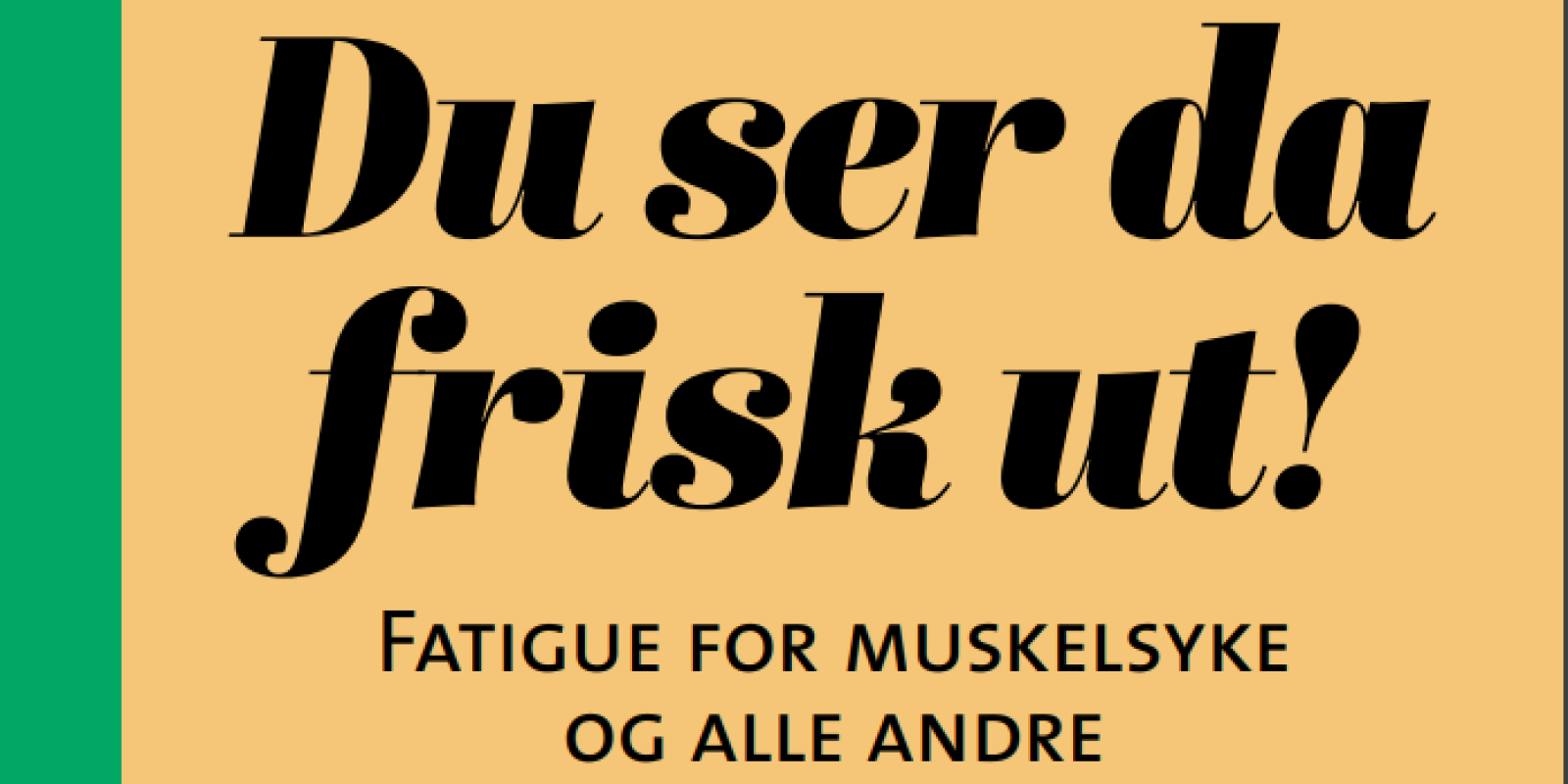- The members of our association have a total of 50 different diagnoses, but many have in common that they suffer from fatigue. Unfortunately, it sometimes happens that people with fatigue are met with attitudes a la "get your act together", says Tollef Ladehaug, project and organizational advisor at the Muscular Dystrophy Association (Foreningen for muskelsyke) .
Ladehaug says that people with fatigue who do not have visible impairments, can experience this to a greater extent. -They may completely burn out trying to keep up their facade and master all tasks in their daily life. The batteries in their bodies do not work as they should, and it takes very long time to recharge them. And it does little to help the situation to be called lazy, he continues.
Ladehaug has produced the booklet "You look healthy, though!" with the aim of increasing the understanding of fatigue. -It has been well received by both members of FFM and people outside the association, he says.
- We get feedback that it is good to have information to show, because you don't have the money to give explanatory lectures to friends, family and colleagues. Not only can it be difficult to explain yourself. The booklet can perhaps contribute a bit of authority to what you are trying to explain.
-Be proud of what works
-The most idiotic thing you can say to someone with fatigue is that they should pull themselves together, says Frauke Musial , pain researcher and professor at NAFKAM. -If you have fatigue, then the brain is sick; it is not something you imagine. Yes, there are ways to deal with it, but you can't ignore it, she says.
Musial contributed with a lecture in a workshop together with FFM, the national Neuromuscular Competence Center and the Frambu Competence Center for Rare Diagnoses . It was precisely this collection that formed the basis for the design of the booklet.
Musial's lecture was about stress, fatigue and pain, and gave tips on how to deal with daily life. Her advice to people with fatigue is that you should not expect too much of yourself, but rather be proud of the functioning level you have.
- The goal when you have such a diagnosis is not to get well or get rid of your disability, the goal is to have a good life. I think that kind of message is better received from someone like me, because I show up in a wheelchair and tell them that I myself have a chronic illness, she says.
- Find a "room" where others understand
Professor Musial believes it is extremely important not to be isolated, but to talk to others in the same situation. - In a patient's association like FFM, you can share practical experiences and meet empathy and support. It is not always that you talk so much about the disease itself when you meet, but you know that you are in a room where others understand, she says.
Also Ladehaug encourages patients to find a community. - Everyone has to find their own way, but it helps to talk to each other. It is one of the most important things you can do, he says.
Read the booklet "You look healthy, though!" here (Norwegian only)
